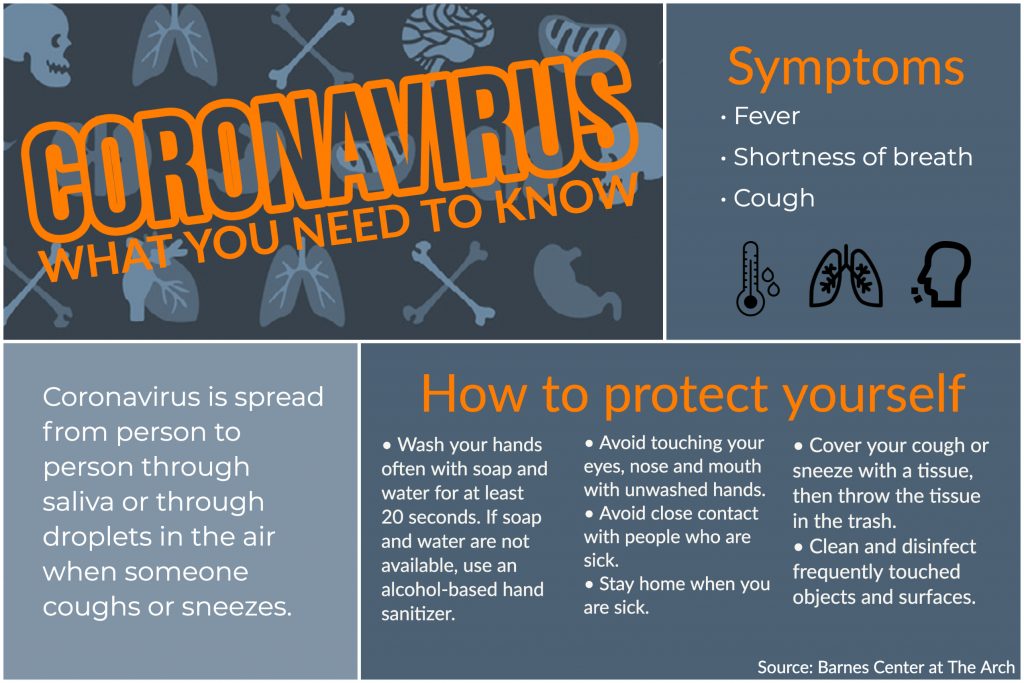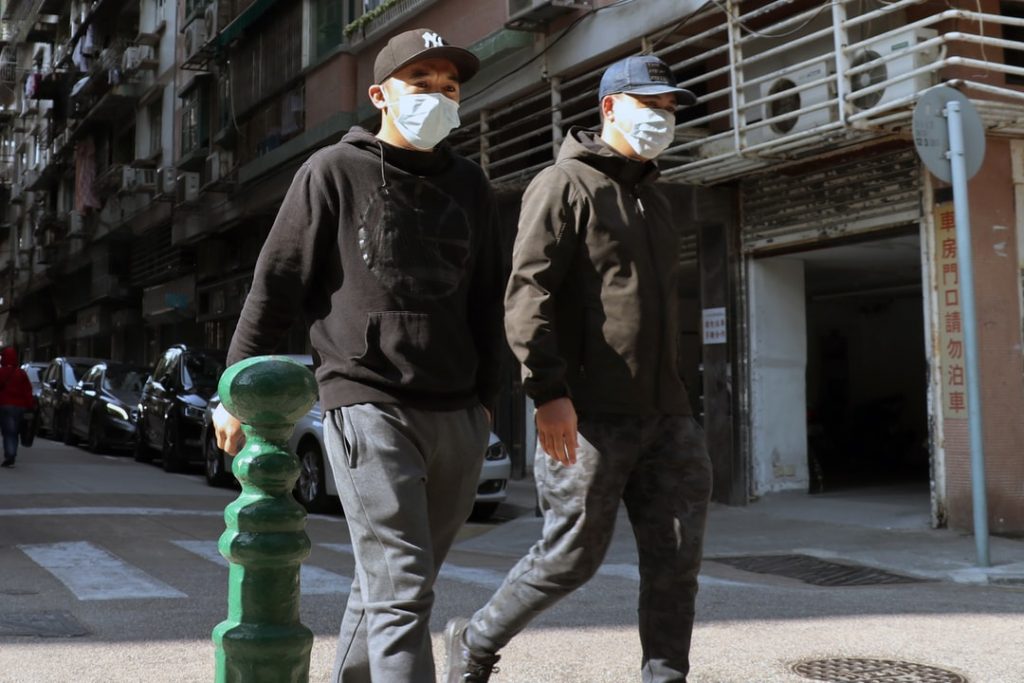Coronavirus’ rapid spread causes problems at SU
Coronavirus' rapid spread causes problems at SU

Syracuse University has remained unscathed by the coronavirus as cases and deaths continue to grow in other parts of the world.
While the SU community is taking proactive measures to prepare for a potential spread, both students and faculty have been impacted in other ways due to the global epidemic.
Marketing and biotechnology junior Nicole Jaskot was planning to study abroad this semester in Shanghai, China, for a university-led World Partner Program until the extent of the coronavirus’ impact started to unfold.
“Last Monday it got canceled,” Jaskot said. “I was really upset, I did cry. It was just an upsetting moment.”
The spread of coronavirus, whose proper name is 2019-nCoV, has disrupted travel worldwide as major airlines have canceled or limited flights to China. The White House restricted entry into the United States for people who pose a risk of transmitting the coronavirus into on Jan. 31.
This meant lots of hoops for Jaskot to jump through regarding flight refunds. However, at the same time, she felt a sense of relief.
“My parents and I were already worried about what was happening and now I’m thankful,” Jaskot said. “I wouldn’t want to be there now. It’s just only escalating and getting worse.”
The origin of the coronavirus
The city of Wuhan, a port in China’s Hubei Province, is the epicenter of the coronavirus’ origin. Officials believe the initial strain was transferred from an animal to a customer in one of Wuhan’s food markets. People who have contracted the coronavirus show flu- or pneumonia-like symptoms such as fever, shortness of breath and coughing.
Because of the coronavirus’s rampant escalation from a health concern in one part of China to 293 total people under investigation for the virus in the United States and 11 positive cases, tension regarding it’s potential to enter people’s lives has increased dramatically. With 206 pending cases, the threat of coronavirus is becoming much more of a reality, and U.S. health officials have been taking a proactive approach to curtail its spread.
“We are alert to it and we’re trying to identify any at-risk people so that we can isolate them and prevent it from spreading,” said Dr. Quoc Nguyen, medical examiner for the Onondaga County Health Department. “Since the White House order has come out, we’re being informed of anyone potentially at risk who travels to our county.”
Nguyen said there are no reported cases in Syracuse as of Wednesday and no cases in the state of New York according to the CDC. According to The Cornell Daily Sun, a student at Cornell University has presented symptoms that mirror those of the coronavirus and is being tested on by the Centers for Disease Control.
Nguyen said while symptoms may not be that different than those of a common cold, the coronavirus’ link to animals presents lots of uncertainty – especially for older and younger populations with more susceptible immune systems.
“Obviously lots of people have the common cold, but this is not the same because this is new and emerging from animals to us,” Ngyuen said. “Humans don’t have the developed immunity to it like many do for colds.”
Since coronavirus operates like many other viral diseases, Ngyuen said that it’s possible for others to have it but not show symptoms. In a country such as China, determining the actual impact may prove challenging.
“The death rate is currently at 2 percent, and the denomination of that proves that many people have it,” Nguyen said. “China has 1.4 billion people, so how do we know the real number of people who have it but don’t have the symptoms and that haven’t been diagnosed?”
SU Chancellor Kent Syverud announced in a press conference on Jan. 29 that the university has been “working and obtaining counsel with health authorities, including the Onondaga County Health Department, the Centers for Disease Control and Prevention and New York State officials.”
Syverud made an emphasis to remind people that Chinese international students returned before Jan. 13 for classes, that the community will do their best to console those students during this tough time and that there are other universities that have announced cancellations to program and restrictions on travel to China.
SU Medical Director Dr. Karen Nardella released a newsletter regarding symptoms to look out for and how students can protect themselves. If you are experiencing symptoms or believe you’ve come in contact with someone who has the virus, it is urgent to contact the Barnes Center at the Arch immediately.

SU professor self-quarantines after traveling in China
Yingyi Ma, sociology professor and director of SU’s Asian American Studies Program, witnessed the public health concerns come to light firsthand while traveling in China last month. She is currently undergoing self-quarantine, a practice that both the Onondaga County Health Department and the Centers for Disease Control urge those who are potentially at risk to do.
As a member of the National Committee for the U.S.-China Relations Public Intellectual Program, Ma spent time with that delegation in southern China in early January before extending her trip to visit family.
Being located hundreds of miles from Wuhan where a vast majority of the cases have been reported, there was was no initial news about the outbreak.
“We were traveling in a couple of cities in south China, and during the whole trip none of us were talking about this,” Ma said. “This whole delegation and where we went, we were not really aware of this or that it was a major epidemic.”
Despite Ma not traveling to Wuhan or the Hubei Province, the impact eventually became noticeable in southern China later last month. Ma continues to monitor the news from Syracuse.
“There are people who wear face masks in China, but not nearly as much to the extent of what they’re doing now,” Ma said. “Now there is this emphasis and requirement from the government to wear facial masks, so now you see that almost 100 percent of people are wearing them in public spaces. It was a huge change for me and my family.”
The effects are being felt for businesses in China as well. Chinese government officials canceled Lunar New Year festivities and advised people to restrict their social gatherings and stay in their homes. Many establishments and day-to-day activities have come to a standstill, Ma said.
“I think there is shock for sure, but people also understand the dire situation,” Ma said. “And it’s not just restaurants, its retail businesses and other things. I think the Chinese economy is going to be hugely impacted by this.”





